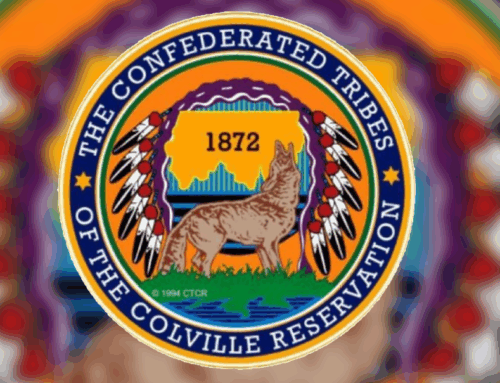Here’s how Iowans can take ownership over their water quality
October 5, 2025
The Gazette offers audio versions of articles using Instaread. Some words may be mispronounced.
The quality of Iowa’s water is a top environmental concern in Iowa, and for many Iowans, there can be a feeling of helplessness. That’s where Heather Wilson comes in. Her work at the Izaak Walton League strives to remove the “barriers of entry” to make water quality testing and advocacy more accessible to the public.
Wilson, who is the League’s Save Our Streams coordinator for the Midwest, oversees the Nitrate Watch program, which equips volunteers and partner organizations with water testing kits to empower people to “monitor their water, share their results, and advocate for solutions.”
Wilson said a key part of her role is engaging with citizen and community scientists who volunteer to test water in their neighborhoods.
Through the program, individuals can engage with both biological and chemical water monitoring, Wilson said. The biological testing includes collecting macro invertebrates in a body of water, while chemical water testing assesses a water body’s nitrate, turbidity, dissolved oxygen, phosphate, chloride, acidity and alkaline levels.
Wilson said the program connects volunteers with opportunities to do more than just test local water, like sharing their data, discussing it with neighbors, the media and their lawmakers.
It is “ultimately providing people opportunities to do advocacy, to try and do more than just document a pollution problem, but also be part of the solution,” Wilson said.
She said in 2024, Nitrate Watch received 304 test kits from Iowans. So far this year, the organization has received 1,190 from Iowans.
Wilson spoke with The Gazette about how Iowans can get more involved with water quality testing efforts and how they can have more authority over the drinking water they are consuming.
This interview has been edited for brevity and clarity.
Q: What can the individual or the homeowner do to take more ownership over the water they are drinking?
A: It can be really disempowering to hear all this chaos in the news, so I think water monitoring itself is a very empowering act. It’s putting information in your hands. This is by no means to say the information coming from other entities, like Iowa nonprofits and monitoring at the county level, is not trustworthy. But some people want more information, especially folks on wells who don’t have the benefit of someone else taking care of their water treatment. It can be nice to have that peace of mind. Nitrate Watch, for instance, is supplemental to these other sources of information.
Q: What role do citizen scientists play when it comes to water quality testing in Iowa?
A: The role of community scientists in both helping understand the scope of pollution, but also in raising awareness about water quality really can’t be understated. One of the goals of our program is to raise awareness about pollution, so that involves educating the folks in our network. They are then catalysts for raising greater awareness.
Water quality issues have been all over the place in the news. The Central Iowa Source Water Research Assessment (a study commissioned by the Polk County Board of Supervisors in 2023 that was completed and published this year) had incredible traction with people becoming more aware and these volunteers and scientists are another big part of that, like the movement toward greater understanding and awareness of pollution. It is really apparent how much those volunteers are helping us fill in the gaps of Iowa specifically, and helping all of us understand the issue better, like, where the pollution is, where it is affecting people and how engaged the populace is. It turns out, in Iowa, they are very engaged.
Q: Many Iowans are concerned about water quality and they may want to test their water. But stepping into that community scientist space could be daunting for someone who has never done it before. What are some ways they can do that?
A: I think just the word “science” can be really daunting for some people who don’t see themselves as a scientist. That’s why with Nitrate Watch and Salt Watch, (the Izaak Walton League has) tried to reduce as many of those barriers to participation as possible. The equipment is free. We can provide free test kits as supplies allow, thanks to some great, generous grant funding, and some of that funding is specifically for Iowa. So, you don’t have to worry about purchasing anything and the test kit’s instructions are very simple.
Another thing that we do that some more localized volunteer science groups won’t do is that we don’t prescribe a sampling regimen. We don’t tell folks when and where to sample. If folks are participating as part of a local organization, like a county conservation department, or a nonprofit, they might be told where to sample. But our volunteers are just told to sample the water they care about. That can be their kitchen tap, it can be their mom’s well, or the stream behind their house.
It doesn’t need to be this difficult process of driving an hour to a stream and sampling every day. And the data reporting is not a heavy lift for volunteers because our database is relatively simple to navigate and then the results are instantly visible, color-coded and arranged in visualizations like maps and graphs. We try to do whatever we can to make volunteers who are interested in taking the step into monitoring as easy as possible for them to say, “yes.“
Q: In recent years, have you had more community scientists in Iowa raise their hand to do more of this testing?
A: Definitely, especially with all the news coverage in Iowa this year, folks have been wanting to learn more about Nitrate Watch and we’ve had our volunteer numbers skyrocket. I would estimate that we’ve had approximately double the volunteers from Iowa this summer compared to last summer. So yes, we’ve seen an uptick, for sure. Part of that is not just the media coverage, but also the work of partner organizations. Iowa Citizens for Community Improvement, for example, has been an incredible partner, by doing work to mobilize their audience to learn more and get involved in testing too.
Q: Besides water testing, what are other ways someone can get involved with water quality issues in their area and take more ownership over the water they’re drinking?
A: This still is engaging with testing, but if you’re a well owner, I would point people toward getting their wells tested at least once a year. Iowa does this through the Private Well Grants Program and they will do it for free. It’s strongly encouraged that well users do that, so you don’t have to do it yourself. You can have someone else do it and it will be even more detailed and go to a lab. We also definitely encourage folks to make use of the data that other folks are collecting, which is publicly accessible on the Clean Water Hub.
Q: What are reliable resources for Iowans to look to when they want to learn the facts about water quality in their area?
A: I would encourage folks to learn more about water quality and stay engaged locally. That could mean joining a local organization about water quality, which are popping up all over the place. There’s the Driftless Water Defenders up in northeast Iowa, the Nishnabotna Water Defenders in southwest Iowa, the Iowa Citizens for Community Improvement and the Iowa Environmental Council. These organizations can do so much more than we can even do to connect folks with opportunities locally and ways to stay involved.
I’d also point to the Iowa Water Quality Information System, which sadly is going to be declining in quantity of its sensors in the coming months. But currently that is a great resource for folks to get real-time information about nitrate in rivers across the state. I don’t think other states are as lucky to have this resource as Iowa is and it’s sad to see it declining. But for the time being, it still is a great resource for hard data and real time high-quality data.
Olivia Cohen covers energy and environment for The Gazette and is a corps member with Report for America, a national service program that places journalists in local newsrooms to report on under-covered issues. She is also a contributing writer for the Ag and Water Desk, an independent journalism collaborative focusing on the Mississippi River Basin.
Sign up for our curated, weekly environment & outdoors newsletter.
Comments: olivia.cohen@thegazette.com
Search
RECENT PRESS RELEASES
Related Post




